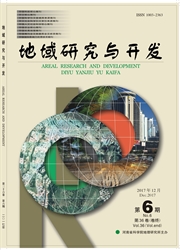

 中文摘要:
中文摘要:
以广州荔枝湾为例,城市居民对休闲空间的地方依恋可分为地方依赖和地方认同两个维度,其中,地方认同即情感性依恋强于地方依赖即功能性依恋。城市居民对休闲空间的地方依恋及地方认同、地方依赖的程度随休闲距离的增加而衰减,随年龄的增长而增强,随教育程度的提高而减弱,同时,还受到闲暇时间的影响,但并不受收入水平的影响。依据休闲活动的地方依赖度和地方认同度差异,可将城市居民划分为功能需求型、地方冷淡型、地方依恋型和情感认同型4类休闲群体。
 英文摘要:
英文摘要:
This paper takes Guangzhou Litchi Bay as a case and estimates the characteristics of urban resi- dents' place attachment. The results show that urban residents' place attachment to leisure places is constructed by two dimensions: place dependence and place identity. Place identity proves to be more important than place de- pendence. Residents' place attachment, place dependence and place identity to leisure places decay with dis- tance, increase with the growth of the age and decrease with the improvement of education level. They are under the influence of the factor of leisure time but not affected by income level. According to different degrees of place dependence and place identity, urban residents can be divided into four leisure groups: the function-required, the indifferent, the attachment and the emotional identifying.
 同期刊论文项目
同期刊论文项目
 同项目期刊论文
同项目期刊论文
 期刊信息
期刊信息
